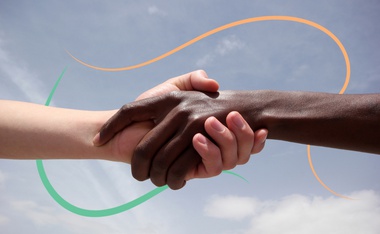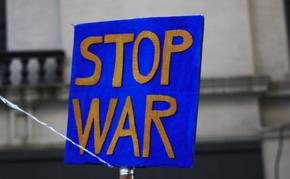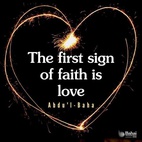The views expressed in our content reflect individual perspectives and do not represent the authoritative views of the Baha'i Faith.
The first part of this two-part series reflected on the disease of racism and its damaging effects on American society – now, let’s turn to the solutions offered by the Baha’i teachings.
The Universal House of Justice, the international governing body for the Baha’i world community, referred to racism as “a profound deviation from the standard of true morality,” and further clarified its effect on the American society, writing: “… it deprives a portion of humanity of the opportunity to cultivate and express the full range of their capability and to live a meaningful and flourishing life, while blighting the progress of the rest of humankind.”
In the same letter, the Universal House of Justice advised that the power of love is the only force capable of transforming and healing the racism inherent in our society, as this quotation from Abdu’l-Baha testifies:
What a power is love! It is the most wonderful, the greatest of all living powers. Love gives life to the lifeless. Love lights a flame in the heart that is cold. Love brings hope to the hopeless and gladdens the hearts of the sorrowful. In the world of existence there is indeed no greater power than the power of love. When the heart of man is aglow with the flame of love, he is ready to sacrifice all — even his life. In the Gospel it is said God is love.
If love is the greatest power in existence, then the big question has to be “How do we make this power an active force in our lives that will lead to transformation from racism?” We can answer that question two ways.
RELATED: Oneness, Sameness, and Power: Can the Races Unite?
Love Emanates from the Divine
Love, the Baha’i teachings say, originates from relationship with the divine. Abdu’l-Baha, in a speech he gave at Columbia University in 1912, said “The divine purpose is that men should live in unity, concord and agreement and should love one another.”
When we pray, meditate, and study the holy writings of Baha’u’llah, those writings deeply affect our hearts, helping us form a love relationship with our Creator. These practices feed our soul, open our hearts, and release the attributes of God that lie dormant within us. In that process, we become open to Baha’u’llah’s first counsel for self-purification, from The Hidden Words: “O Son of Spirit! My first counsel is this: Possess a pure, kindly, and radiant heart that thine may be a sovereignty ancient, imperishable, and everlasting.”
How Do We Purify Our Hearts?
Once we realize that love emanates from our spiritual relationship with the Creator, how do we cleanse and purify our hearts? The answer can be found in the writings of Baha’u’llah about inner self-transformation, like this one: “A pure heart is as a mirror; cleanse it with the burnish of love and severance from all save God, that the true sun may shine therein and the eternal morning dawn.”
Burnish, a very descriptive term, speaks to the process of cleansing, polishing, smoothing away rough edges, and ultimately shining. The term applies to the cleansing and polishing of precious metals, among other things. When I was a youth, my mother typically gave me the task of cleaning the silver that had become oxidized over time, turning it dull gray and in some areas black. The cleansing process required a gritty cream, steel wool and “elbow grease” to achieve the desired result. It was a long and messy job, but when finished I was very proud of how the silver sparkled and shone.
This is the task we are called upon to do for our hearts, while assisting others to do the same with theirs. Love is the burnish.
The resulting purity and radiance of heart is the spiritual beauty shining forth as we cleanse away the dross and dirt of racism and prejudice. It is not an easy process, and it takes a good deal of work over a long period of time. Shoghi Effendi, the Guardian of the Baha’i Faith, impressed this truth upon us in his book Advent of Divine Justice, when he called the healing of racism “A long and thorny road, beset with pitfalls …” However, it is a road that we have no option but to traverse, and the longer we resist the journey the more painful will be the process.
When we use the power of love to educate us about this force, and to inspire us to ponder and reflect on its use in a way we may not have previously considered, it can release society-building power to heal our nation, while we are healing each other.
Without question, our healing from racism will require this powerful force of love as a prerequisite.
RELATED: Abdu’l-Baha: Radical Anti-Racist
Acting With Love
How can we tell if we are acting with love in relationship with each other? I believe that when we follow the guidance deeply embedded in Baha’u’llah’s first passage in his book The Hidden Words to purify our own hearts, we become increasingly able to see each other through the eyes of God. The varying colors, shapes, and sizes of humanity become beautiful to us. We begin to gravitate to individuals different from us and whom we once shunned. Relationships with each other become more loving, caring, intimate ones.
Ultimately, we seek to live in neighborhoods together and to be in each other’s homes and hearts. The terms “dominant culture” and “subordinate cultures” fade away. “I see you, I hear you, and you matter to me” becomes the operating focus of our hearts toward each other. Ultimately, we will live as “one soul in many bodies …” according to the standard set for us by the Baha’i teachings.
















Comments
Sign in or create an account
Continue with Googleor